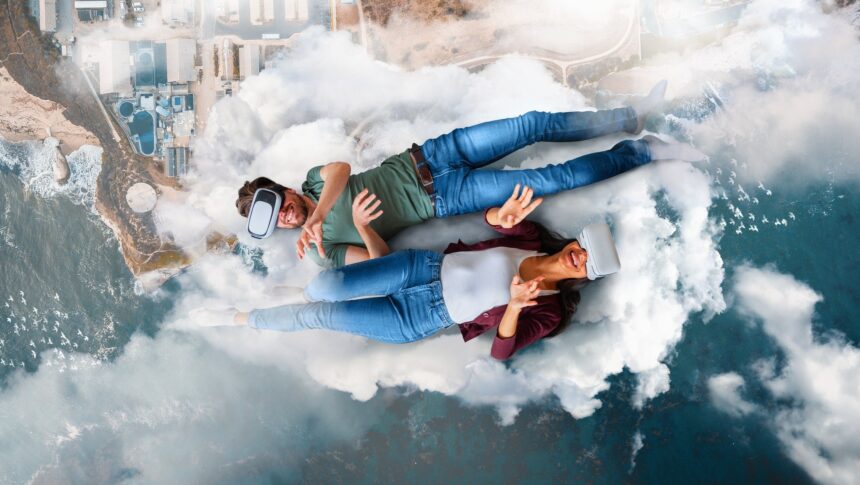Virtual Reality (VR) is revolutionizing the tourism industry by offering immersive destination experiences and virtual tours. Here’s how VR is enhancing tourism:
Virtual Destination Experiences:
- VR allows travelers to explore destinations virtually before making travel decisions. They can experience the sights, sounds, and ambiance of a place without physically being there.
- Virtual destination experiences provide a preview of tourist attractions, landmarks, and cultural sites, enticing travelers to visit in person.
- VR enables travelers to experience destinations that may be difficult to reach or have limited accessibility, such as remote locations, historical sites, or natural wonders.
Virtual Tours and 360-Degree Videos:
- VR technology enables the creation of virtual tours and 360-degree videos, providing an immersive and interactive way to explore destinations.
- Users can navigate through virtual environments, interact with objects, and gain a comprehensive understanding of the location.
- Virtual tours offer flexibility and convenience as travelers can explore at their own pace and revisit places of interest.
- Virtual tour platforms and apps provide curated experiences and expert commentary, enhancing the educational aspect of the tours.
Enhanced Marketing and Booking Experiences:
- VR experiences are used in marketing campaigns to showcase destinations and accommodations, captivating potential travelers and sparking their interest.
- VR-based booking platforms allow users to virtually tour hotel rooms, resorts, and vacation rentals, helping them make informed decisions and visualize their stay.
- VR technology can simulate various travel scenarios, such as flight experiences or guided tours, providing a realistic preview of the travel journey.
Cultural Preservation and Heritage Tourism:
- VR plays a significant role in preserving cultural heritage and historical sites by creating virtual replicas or reconstructions.
- VR allows users to virtually explore ancient ruins, historical landmarks, and museums, promoting heritage tourism and ensuring the preservation of cultural artifacts.
- Virtual reality can bring to life historical events, enabling visitors to experience significant moments in history.
Accessibility and Inclusivity:
- VR makes travel experiences accessible to individuals with physical limitations or disabilities.
- Virtual tours and experiences provide an inclusive way for people to explore destinations, irrespective of their physical location or mobility constraints.
- VR technology can simulate experiences that might be challenging or impossible in real life, such as scuba diving, climbing mountains, or visiting extreme environments.
Pre-trip Planning and Decision-making:
- VR assists travelers in planning their trips by offering a realistic and immersive preview of destinations and attractions.
- Users can explore different itineraries, hotels, and activities virtually, helping them make informed decisions about their travel plans.
- VR experiences provide a sense of presence and enable travelers to evaluate the suitability of destinations based on their preferences and interests.
Virtual Reality is transforming the way travelers engage with destinations, allowing them to immerse themselves in different cultures, explore landmarks, and make informed travel decisions. By providing realistic and immersive experiences, VR enhances the overall tourism experience and inspires travelers to explore the world in new and exciting ways.





